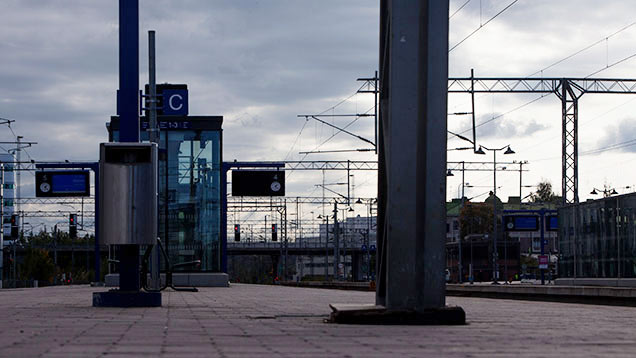Reserve police assist the police in unexpected, exceptional and temporary circumstances

In the future, the reserve police could be deployed during a state of emergency as well as during disorder in a normal situation. This will allow for a more effective response to a changed security situation and new threats and strengthen the operational capability of the Finnish police in extensive and wide-reaching incidents and security situations. On 20 September, the Government submitted a proposal to Parliament for legislation on reserve police and certain related acts.
"The role of the reserve police is to support the police in temporary situations when something unforeseen occurs." In a changing security situation, disorder in normal circumstances may rapidly escalate into a situation that is challenging to control and even turn into an emergency," says Kai Mykkänen, Minister of the Interior.
The current regulations on supplemental police will be repealed and replaced by legislation on reserve police. The scope of application for the legislation will include emergency and defence situations as well as disruptions during normal situations. An example of such a disruption could be an exceptionally heavy influx of immigrants, when the police will need additional resources, or if the threat level has been temporarily raised to a level that means police resources will be overstretched.
The reserve police always operate under the direct command of the professional police
The purpose of the reserve police is to free up professional police resources to manage their core functions. Reserve police would never operate independently and would only support the professional police under their direct command. The Government would always decide on the deployment of the reserve police.
The tasks, authorities, obligations and rights to use coercive measures during disorder in normal situations as well as during emergency or defence situations are detailed in the proposal. The qualifications for reserve police are also provided for in the proposal, and they would be recruited in a public-service employment relationship, subject to Government deployment decision. Furthermore, the reserve police operatives must complete compulsory basic training and maintain their skills while in reserve.
The authorities will change if the situation in society escalates
During disruptions in normal situations, the reserve police would support the police by maintaining public order and manage the security at public meetings and events as well as traffic policing. Guarding closed areas and the transport and guarding of persons in detention could also be among the duties of the reserve police. In emergency and defence situations, the reserve police could be authorised to carry out all police duties. The right of the reserve police to carry guns is limited to emergency and defence situations only, and would not apply when managing disruptions during normal situations.
The reserve police are planning to recruit 1,000 operatives, who could be, for example, persons over 35 years of age with military police training, security guards and other persons interested in supporting the police. The recruits would be voluntary and committed to their duties, and they would be subject to security clearance.
The estimated initial investment for the establishment of the reserve police force is EUR 2.1 million, while the running costs will be in the region of EUR 250,000 annually. The cost of 100 deployed reserve police operatives would be EUR 400,000–450,000 per month.
Inquiries:
Heli Heikkola, Ministerial Adviser, tel. +358 (0) 295 488 224, [email protected]